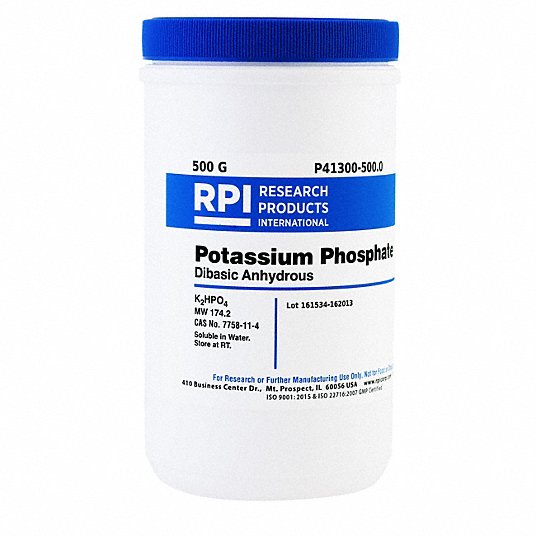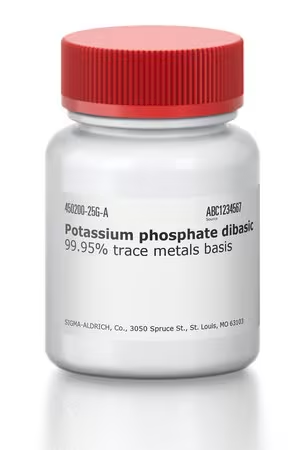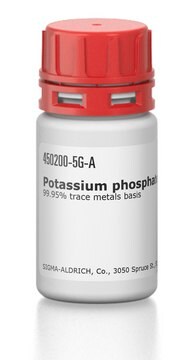Description
Potassium phosphate (K2HPO4) is a versatile inorganic compound that plays a significant role in various fields, including agriculture, food processing, and biotechnology. As a source of potassium and phosphate, it serves as an essential nutrient for plant growth, promoting healthy root development and enhancing overall plant vigor. In agricultural practices, K2HPO4 is often applied as a fertilizer, especially in soils that are deficient in these vital nutrients. Its water-soluble nature enables rapid uptake by plants, making it an effective choice for crop production.
In addition to its applications in agriculture, potassium phosphate is widely used in the food industry as a food additive. It acts as a stabilizer, emulsifier, and acidity regulator, improving the texture and shelf life of various processed foods. As a buffer, it helps maintain the desired pH level in products like dairy, meat, and beverages, ensuring quality and safety. Furthermore, potassium phosphate is also utilized in biopharmaceutical and laboratory settings, where it serves as a buffering agent in solutions and media prepared for cell culture, contributing to consistent experimental results.
The compound’s safety and compatibility with various biological systems make it an invaluable component in many applications. As research continues, potassium phosphate may find even more innovative uses, particularly in developing sustainable agricultural practices and enhancing food quality. Overall, K2HPO4’s diverse applications underscore its importance in both agricultural and industrial sectors, highlighting the need for continued exploration and understanding of its properties.












